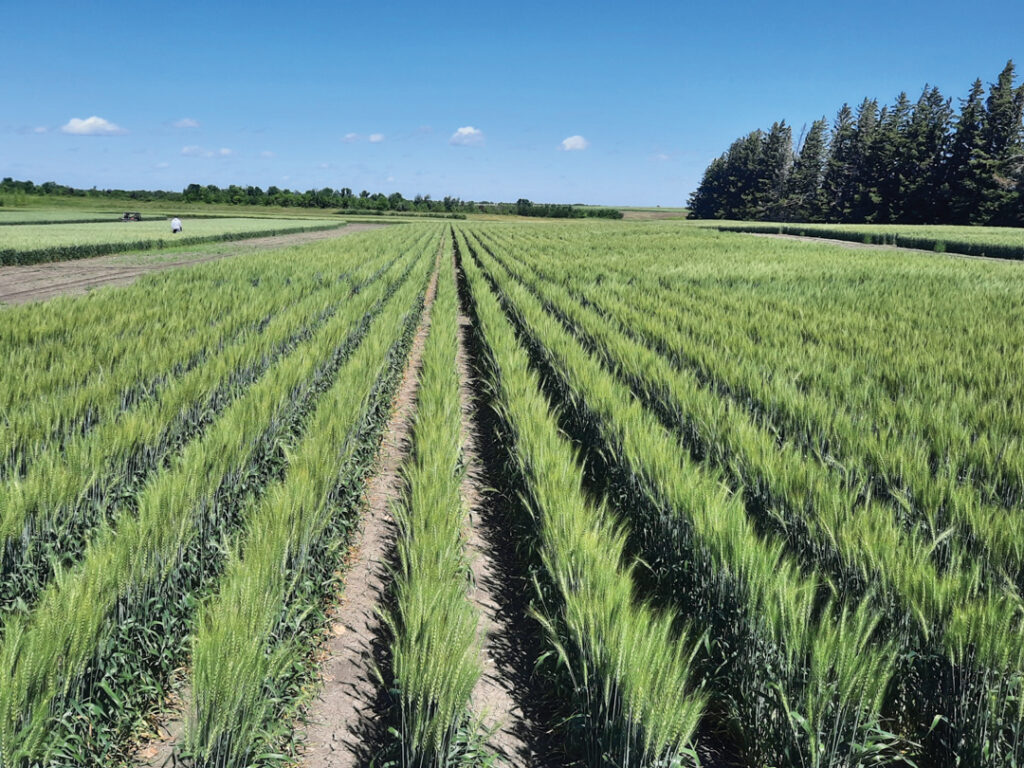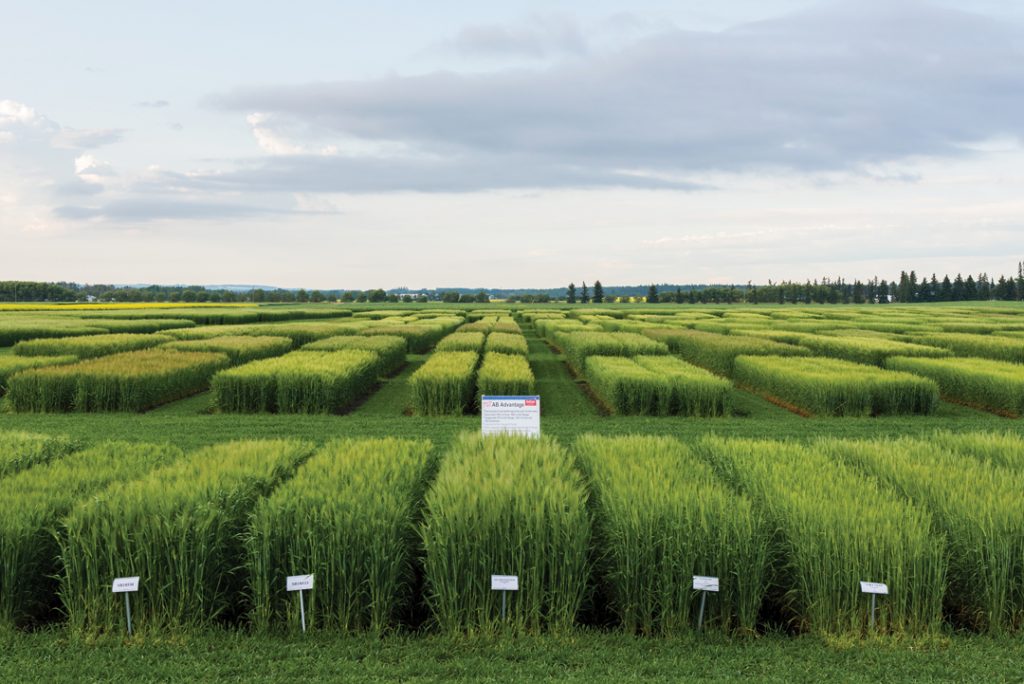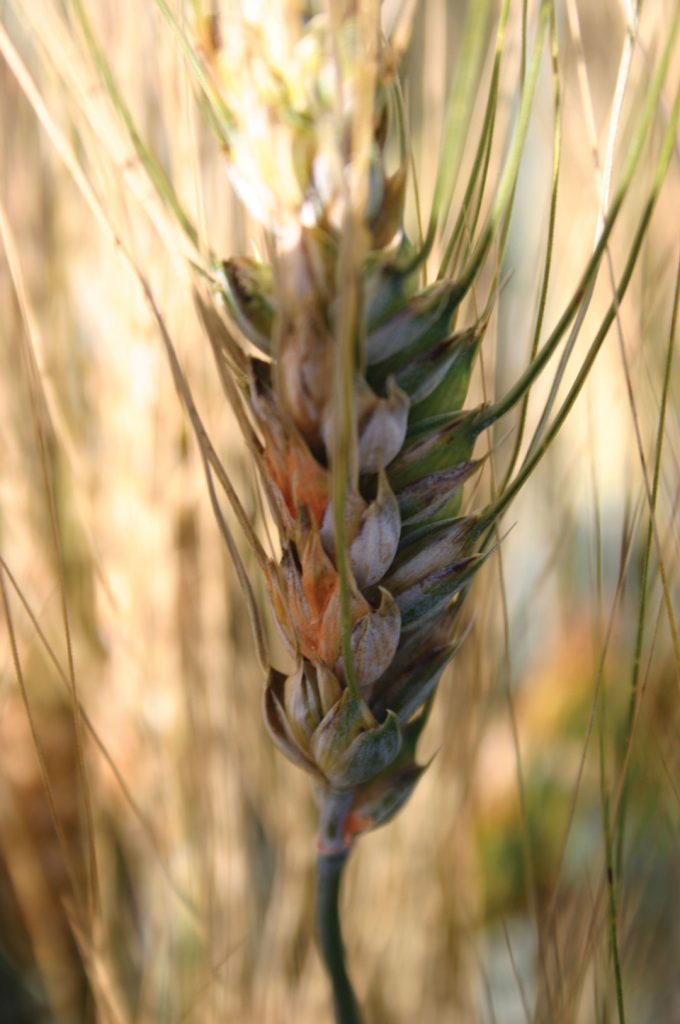NEW SOFT WHITE WHEAT DELIVERS
Agriculture and Agri-Food Canada crop breeder Harpinder Randhawa has made impressive gains in soft white spring wheat breeding in recent years, and AAC Raymond is his latest success. “Soft whites are unique in their end-use potential,” said Randhawa, who works at the Lethbridge Research and Development Centre. “Historically, soft white wheats have been grown in southern Alberta and Saskatchewan for milling cookies, cakes and biscuits. Owing to their low protein and high starch content, however, they are also ideal for ethanol and brewing malt.”











